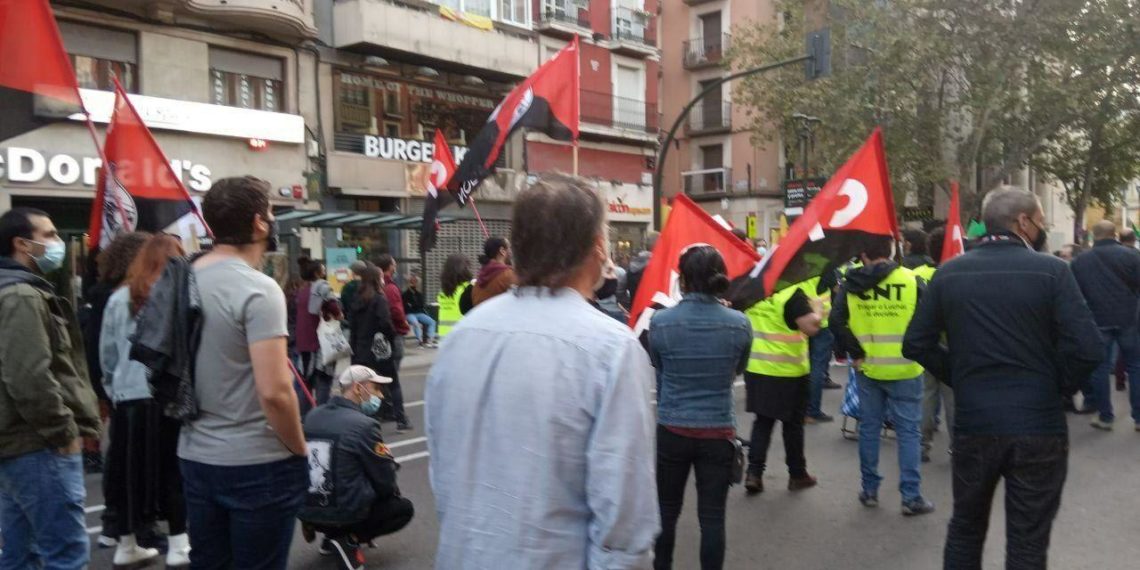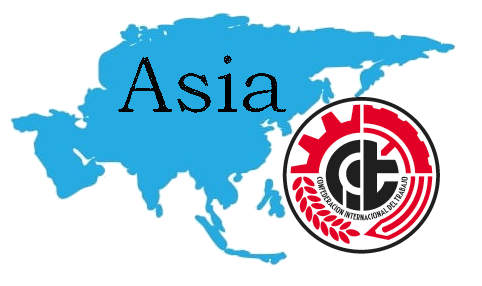On October 19, 2020, CNT’s union section in Alumalsa, the largest aluminium works in Spain, and the Local Zaragoza Branch of CNT called for an indefinite strike to stop 230 workers, 40% of the workforce, being made redundant.
The strike continued until October 31 and was supported by all workers in the manufacturing area, despite an absolutely disproportionate police presence.
CNT’s union section opposed these redundancies, as we understand that the company’s problems are merely circumstantial (as they arise from a client cancelling one order). Therefore, we can’t accept irreversible job losses, but rather negotiate other measures that guarantee all jobs, including reduced working hours. On top of that, 22 of the 25 women who are part of the factory’s workforce will be dismissed. That’s as many as can be legally fired! (the other three are part of the works council and can’t be dismissed). According to labour legislation, this is a clear case of gender discrimination.
The company has also claimed economic, technical, organisational and productive reasons due to the COVID-19 pandemic for the dismissals. However, CNT’s union section considers that these don’t fit the causes considered in the existing legislation (Royal Decree 9/2020) for redundancies.
CNT’s union section had already argued against the management proposals in a negotiating committee, that had been set up with all the unions present in the company (SITA, UGT, CCOO and OSTA, in addition to CNT). The five unions had jointly organised protests against the company’s plans in the previous days. These were a resounding success, thanks to the participation of the workers themselves and to the solidarity shown by the citizens of Zaragoza. Nevertheless, all unions except CNT accepted to negotiate with the company the conditions of the redundancies, instead of rejecting their necessity outright. CNT refused to do so because we understood that there was no reason for these measures.
In early November, the unions on the negotiating committee, except for the CNT, reached a preliminary agreement with the company in which they accepted the dismissal of 180 workers, most of them with a severance pay of 33 days per year worked in the company. Redundancies affect mainly women and the younger in the workforce.
CNT denounces the approach that the other unions CCOO, UGT, SITA and OSTA have taken in the conflict. From the beginning of the negotiations, they presented redundancies as a foregone conclusion, when the company has never proved or justified that such measures were required. Instead, these unions have presented the workforce with a fake choice between dismissals with good or bad conditions. The truth is that’s not the actual situation at all. In fact, such a proposal goes against the initial workers’ demands to defend all jobs, the banner under which they mobilised from the start.
The nature of the conflict and the preliminary agreement being presented to the workforce as such, it’s little surprise that they voted to ratify the lesser of two evils. The agreement was approved, with the members of CNT’s section voting unanimously against it. As a consequence, CNT’s strike committee called the indefinite strike off. However, it remains firmly opposed to the measures approved.
CNT considers that the business union representatives have signed a very bad agreement with the management. It sanctions the loss of 180 jobs in the manufacturing sector in Aragon, though, in our opinion, the company has never proved that these redundancies were required. 180 families in Zaragoza have been sent to the dole in the midst of a world health crisis. This is especially hurtful if we consider that these redundancies could have been avoided with other measures, such as a temporary reduction of the working hours, lay-offs and early retirement of older workers. There certainly was no need for mass redundancies.
CNT will continue to stand up against the loss of industrial jobs in Aragon and for the improvement of working conditions.
Also available in:
 Español (Spanish)
Español (Spanish)













